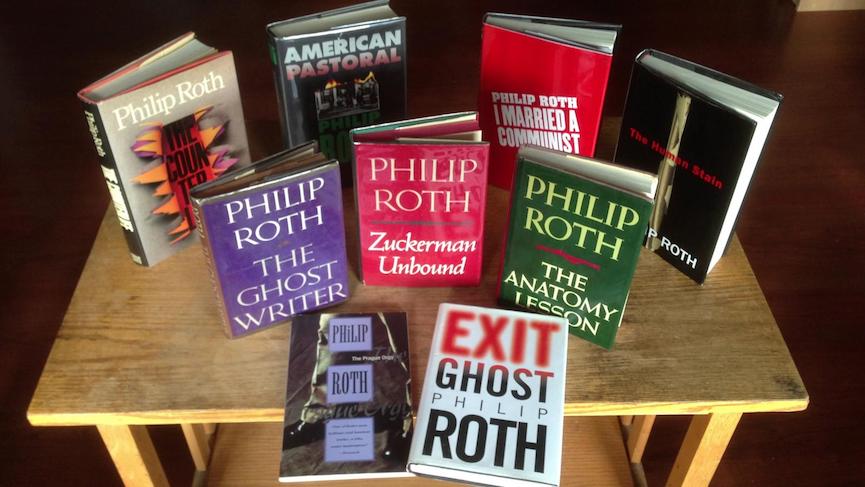Goodbye, Columbus (1959). This was Philip Roth’s first, a collection of short stories. The one that gripped me, while still a kid, was Eli the Fanatic. Eli, an American Jew, moves from downtown into an affluent suburb but a group of traditional Hasidic Jews arrive, threatening his and others’ ability to blend in. He’s torn, something in his historical memory moves him to don the clothes of a Hasid and walk through the community. He has cracked.
We’d moved from downtown Toronto to Forest Hill and I too felt disoriented and was experimenting with Jewish religiosity as a way to locate myself. So it resonated. But it also had striking images, along with character, plot and ideas. It didn’t depend, like later Roth works, on the manipulation, even the incessant clanging, of powerful language. It wasn’t in any obvious way about Roth himself, like almost everything afterward. It focused on someone not Roth, though there was a Rothian guy in the title tale.
Portnoy’s Complaint (1969). This was loud, funny and riotous which, for a Canadian spending a decade in the U.S., was unnerving. Like Whitman, Melville, Henry Miller, it was national literature in a different gear than ours. Writing as a virtuoso act, an extreme sport, you just let fly and risk everything. That style had a special marker in the 1950s and ’60s, embodied in the bravura monologues of plays like Albee’s “The Zoo Story.” (“There he was, malevolence with an erection” — about a dog.) At every new play, you knew it was coming.
Roth’s novels, starting with Portnoy, were like those bravura monologues, going on for hundreds of pages. For me the most touching moment came when Ronald Nimkin, a “nice Jewish boy,” suicided in the shower, with a note pinned to his “sports shirt” telling his mother that Mrs. Blumenthal called and won’t be able to play Mah-Jong. Then “Portnoy” lets fly at Jewish mothers. I suppose I identified: my mom played “Maj.” But what it lacked was any compassion toward the mother comparable to what Roth showed the son. It’s always striking to find writers (and others) capable of great empathy for one person or group but not, or barely, extending it elsewhere.
American Pastoral (1997). One of many said to be his masterpiece. It’s about the failed relationship between a dad and his daughter, who’s also a daughter of the ’60s. The lack of empathy here is for that decade and the child, alongside vast empathy for the decades and (mainly) men of the 1940s and ’50s.
There’s a terribly sweet scene, I think in Portnoy, of watching “the men” play baseball in a park when he was a kid. I watched guys like that in Christie Pits, postwar. Roth was all in for them but had zero for their children in later eras. There was a decisive break around 1960, between those whose lives were basically cast just before that, and those who came after, with divergent attitudes on sex, politics, music, everything. I experienced the gulf often enough, sometimes with writers. It was like running into a snowbank in the middle of summer. Suddenly very frosty.
I guess it’s clear I didn’t really like Roth the writer, but felt close to him, touched by him and the world he depicted. Really, why ask more from an author, like “liking” them, when they’ve already given you so much?
Very late, after announcing he’d write no more, he reread everything to see if he’d “wasted my time,” and reached no conclusion. Why should he? By the time you have enough data to even examine the question, it’s too late to do otherwise.
He’d dedicated his life to writing, he had no kids. (“I guess I didn’t want them,” he too casually told an interviewer.) The owl of Minerva, as Hegel said, takes flight in the gathering dusk. Roth quoted, said a Reuters obit, “Joe Lewis, the heavyweight boxing champion …: ‘I did the best I could with what I had.'” Note the misspelling of Louis (later corrected). Sic transit gloria etc.
History’s judgments matter little in the end. What matters is your loyal readers, who find themselves in what you wrote. He did just fine.
This article originally appeared in the Toronto Star.
Image: Jason Pettus/Flickr



